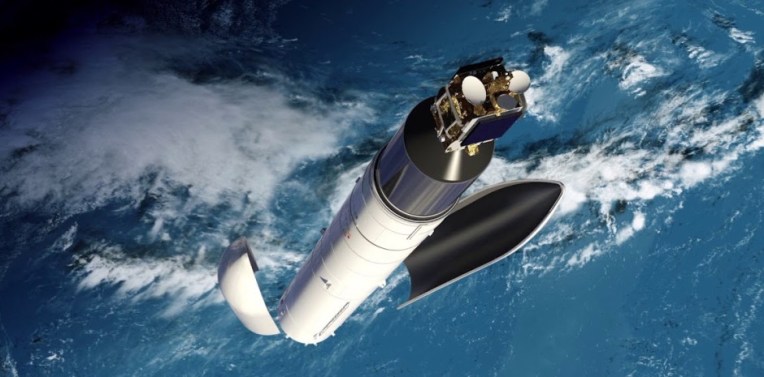Products You May Like
Welcome back to Max Q, our weekly look at what’s happening in space and space startup news. This week was a bit more quiet than usual coming off of the amazingly over-packed International Astronautical Congress, but there were still some big moves that promise a lot more action to come before they year’s over – particularly in the race to fly American astronauts to space on a rocket launched from American soil once again.
There’s also startup news, including how an entirely different kind of race – one to make stuff in space – could be a foundational moment that opens up entirely new areas of opportunity for entrepreneurs big and small.
SpaceX needs to nail one key ingredient before its Crew Dragon missions can proceed apace with people on board. Actually, it has to nail quite a few, but parachutes are a crucial one, and it has been developing the parachutes that will help Crew Dragon float back safely to Earth for years not.
The third iteration is looking like the one that will be used for the first Crew Dragon missions with astronauts, and luckily, that version three system has now completed 13 successful tests in a row. That’s approaching the kind of reliability it needs to show to be used for the real thing, so this is good news for the current goal of putting astronauts on board early next year.
SpaceX has another key test for Crew Dragon coming up as early as this week – a static fire of its capsule abort engines. This is a key test because the last one didn’t go so well. Also, Boeing will be doing their pad abort test as early as this week as well, which sets things up nicely for a busy time next year in crewed spaceflight.
Launching stuff to space is expensive and really limits what you can do in terms of designing spacecraft and components. There’s been efforts made to reduce the costs, including SpaceX and Blue Origin pursuing reusable rocketry, but just building stuff up there instead of launching it could unlock much deeper cost savings – and new technical possibilities. (ExtraCrunch subscription required)
Satellite propulsion has, until very recently, been almost entirely a bespoke affair, which translates to expensive and generally not accessible to startup companies who actually have to worry about stuff like burn rates. But Morpheus Space has a new “Lego-like” system for offering affordable, compact and scalable propulsion that can serve pretty much any satellite needs.
Small satellite business is booming, and Kepler wants to make sure that developers are able to figure out what they can do with smallsats, so it’s offering a developer kit for its toaster-sized IoT communications satellites. Cooler than the Apple TV dev boxes that were on offer once upon a time.
The ISS is getting a shipment of supplies and scientific material courtesy of a resupply cargo capsule launched by Northrop Grumman on Saturday. One thing on board is twelve containers of read wine, courtesy of startup Space Cargo Unlimited. I’ll have more info about that on Monday, so stay tuned.

